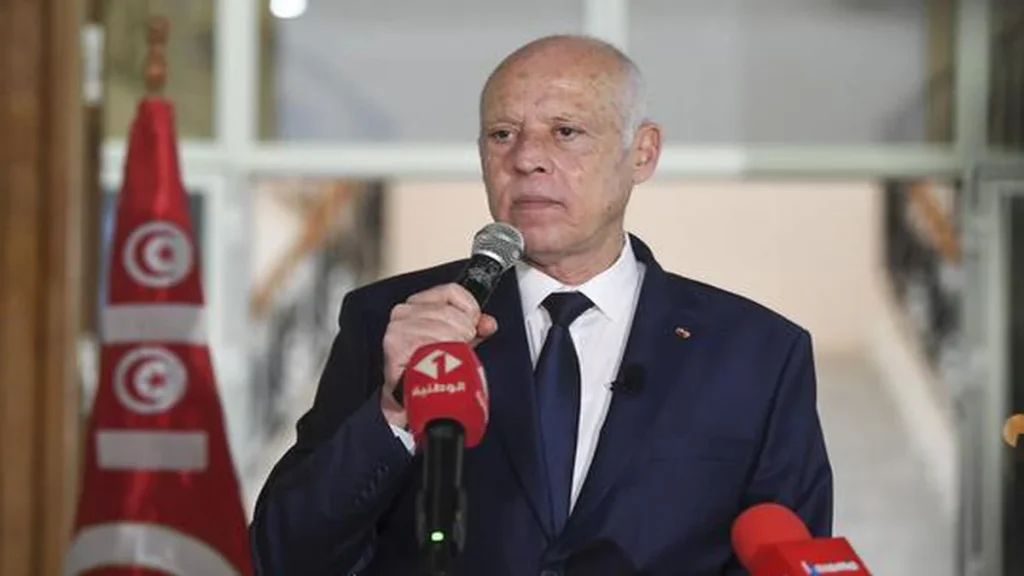On May 1, 2022, Tunisian President Kais Saied announced a “national dialogue” to address the political crisis sparked by his July 25, 2021, power grab, which saw him dismiss the government and rule by decree in what critics, including the Ennahdha party, called a “coup.” Speaking in Tunis, Saied tasked a commission with managing the dialogue, involving only the four groups of the 2015 Nobel Peace Prize-winning National Dialogue Quartet: the Tunisian General Labour Union (UGTT), the Tunisian Confederation of Industry, Trade and Handicrafts (UTICA), the Tunisian Human Rights League, and the Tunisian Order of Lawyers. “This is probably the last chance to bring the country together,” UGTT leader Noureddine Taboubi urged, warning of potential “economic collapse.”
Exclusion of Key Opposition Groups
Saied explicitly excluded groups he accused of “sabotaging, starving, and mistreating the people,” notably the Islamist-inspired Ennahdha party and the National Salvation Front, a coalition of five parties and five civil society groups formed in April 2022. Ennahdha, a dominant force since the 2011 Arab Spring revolution that ousted Zine El Abidine Ben Ali, condemned the exclusion as undemocratic. “The national dialogue must include all political forces,” an Ennahdha spokesperson told Reuters, arguing Saied’s approach undermines the pluralism that defined Tunisia’s post-2011 democracy. The G7 and EU, which have pressed for inclusive talks, expressed concerns over Saied’s consolidation of power, including dissolving parliament and arresting opposition figures.
Constitutional Reforms and Economic Stakes
Saied outlined plans for a “New Republic,” with a constitutional reform committee preparing amendments for a July 25, 2022, referendum, followed by legislative elections on December 17. Critics, including Human Rights Watch, fear the reforms aim to entrench a presidential system, sidelining checks and balances. Tunisia’s economic crisis, with 9.2% inflation and 15.1% unemployment in 2022 (World Bank), adds urgency. The country seeks a $4 billion IMF loan, but the U.S., the IMF’s largest stakeholder, insists on democratic reforms. “Tunis must address concerns on democracy if it wants international economic support,” a U.S. official stated, per France 24, highlighting tensions between Saied’s agenda and external expectations.
Political and Social Backdrop
Saied’s 2019 election capitalized on public frustration with corruption and economic stagnation, but his 2021 moves sparked protests and accusations of authoritarianism. The UGTT, while critical, joined the dialogue to avert “a dismantling of the state,” per Taboubi, but faced internal divisions over supporting Saied. By August 2025, the dialogue had faltered, with Saied’s 2022 constitution, approved in a low-turnout referendum, granting him sweeping powers. Ennahdha leaders faced arrests, and media crackdowns intensified, with 35 journalists jailed by 2024, per Reporters Without Borders. “Saied’s exclusionary approach risks further polarization,” warned analyst Tarek Megerisi, noting declining public trust.
Outlook and Regional Implications
Tunisia’s crisis reflects broader challenges in post-Arab Spring democracies. The exclusion of opposition groups like Ennahdha and the Salvation Front risks escalating tensions, with 67% of Tunisians disapproving of Saied’s leadership in a 2023 Afrobarometer survey. The stalled IMF talks, amid demands for subsidy cuts Saied rejects, deepen economic woes, with 20% of Tunisians facing food insecurity in 2022 (WFP). “A genuine national dialogue requires all voices,” the Salvation Front argued, calling for Saied to reverse course. As of August 2025, Tunisia faces a critical juncture: inclusive dialogue could stabilize its democracy, but Saied’s trajectory suggests a prolonged crisis, threatening the legacy of the Arab Spring’s sole democratic success story.






